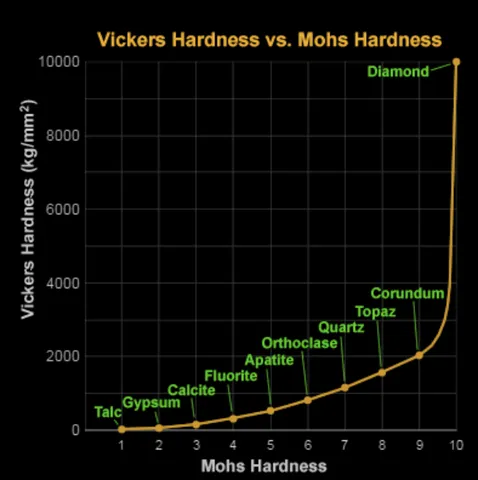What is hardness in mineralogy ?
Hardness : definition
It is said that a mineral is harder than another if it scratches it without being scratched by it itself. On this basis, an Austrian mineralogist, F. Mohs, established in 1824 a scale of relative hardness from 10 common standard minerals : talc (hardness 1), gypsum (hardness 2), calcite (hardness 3), fluorite (hardness 4), apatite (hardness 5), orthoclase (hardness 6), quartz (hardness 7), topaz (hardness 8), corundum (hardness 9) and diamond (hardness 10). The hardness of minerals is therefore assessed in a relative manner from this scale, called the Mohs scale, universally used because it is simple and very practical.
Measuring the absolute hardness of minerals is more complex to perform. It is known as Vickers hardness and assessed by a weighted microdurimeter. The Vickers hardness (noted VHN for Vickers' Hardness Number) is necessarily given with this weight. The diagram presented here shows that the Mohs hardness scale is not linear in Vickers hardness beyond corundum, diamond is indeed much harder.

